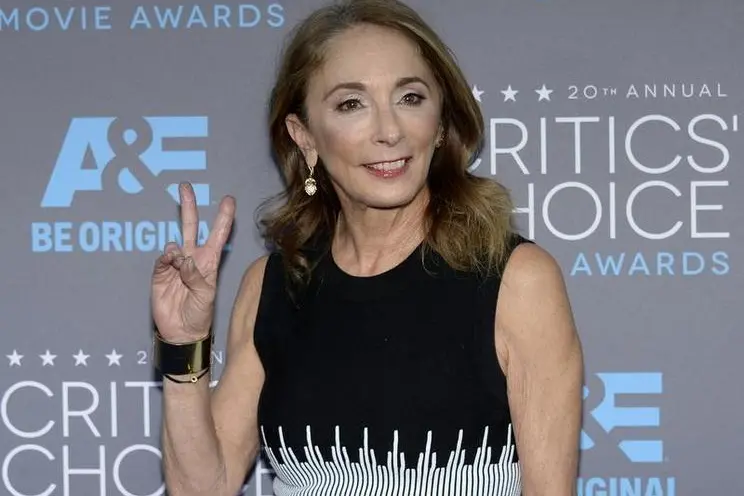PHOTO
By Jill Serjeant
NEW YORK, Oct 25 (Reuters) - "Good Girls Revolt" is set in 1969, just as the women's movement was taking off in the United States, but the creators of the new Amazon Studios
AMZN.O
TV show say it could not feel more current.
Set in a newsroom whose female researchers sue for equal employment rights, the series lands in the midst of a national conversation about sexism and sexual harassment that has dominated the final weeks of the U.S. presidential campaign.
"It's all like some horrible, acid flashback for me," said Lynda Obst, executive producer on the show, which debuts on Amazon's streaming platform on Friday.
Obst, a former journalist who lived through women's liberation in the 1970s, said multiple allegations of groping by Republican White House contender Donald Trump and his lewd language about women in a recently leaked 2005 tape, felt "like the worst day at work in 1969."
"I think it's kind of wonderful that the TV show gets to show you what it was like in the workplace back then ... and at the same time show that in some terrible way our presidential candidate exhibits the same behavior," she said.
Trump has denied accusations of inappropriate conduct made by at least 11 women.
"Good Girls Revolt" is inspired by a landmark sexual discrimination case brought against Newsweek magazine in 1970 by women researchers who were barred from working as reporters, all of whom were men.
It also explores how women's liberation upended notions of marriage, career, motherhood, sex and workplace relationships between men and women.
If that sounds like "Mad Men" for journalists, it is not the intention, said the show's creator, Dana Calvo.
"'Mad Men' was dark, internal, sexy. But our show has a sunnier outlook, in part because women aren't so internal," she said.
"Good Girls Revolt" looks at changes in gender power structures in the 1970s but keeps the tone light.
"It was wild! We wanted to show young women that feminism is fun. It looks good, we dressed great, and it's sexy. Don't go around thinking that feminism is this grumpy, grim thing that you don't want to be part of," said Obst.
Calvo hopes that the series will demonstrate that "nobody needs to give you permission to change the world, that you can take little steps."
"I don't think a day went by on the set when we didn't think how far we (women) had come, and how much we still have to do" she said.
(Reporting by Jill Serjeant; Editing by Piya Sinha-Roy and Steve Orlofsky) ((jill.serjeant1@thomsonreuters.com; 646 223 5968;))
NEW YORK, Oct 25 (Reuters) - "Good Girls Revolt" is set in 1969, just as the women's movement was taking off in the United States, but the creators of the new Amazon Studios
Set in a newsroom whose female researchers sue for equal employment rights, the series lands in the midst of a national conversation about sexism and sexual harassment that has dominated the final weeks of the U.S. presidential campaign.
"It's all like some horrible, acid flashback for me," said Lynda Obst, executive producer on the show, which debuts on Amazon's streaming platform on Friday.
Obst, a former journalist who lived through women's liberation in the 1970s, said multiple allegations of groping by Republican White House contender Donald Trump and his lewd language about women in a recently leaked 2005 tape, felt "like the worst day at work in 1969."
"I think it's kind of wonderful that the TV show gets to show you what it was like in the workplace back then ... and at the same time show that in some terrible way our presidential candidate exhibits the same behavior," she said.
Trump has denied accusations of inappropriate conduct made by at least 11 women.
"Good Girls Revolt" is inspired by a landmark sexual discrimination case brought against Newsweek magazine in 1970 by women researchers who were barred from working as reporters, all of whom were men.
It also explores how women's liberation upended notions of marriage, career, motherhood, sex and workplace relationships between men and women.
If that sounds like "Mad Men" for journalists, it is not the intention, said the show's creator, Dana Calvo.
"'Mad Men' was dark, internal, sexy. But our show has a sunnier outlook, in part because women aren't so internal," she said.
"Good Girls Revolt" looks at changes in gender power structures in the 1970s but keeps the tone light.
"It was wild! We wanted to show young women that feminism is fun. It looks good, we dressed great, and it's sexy. Don't go around thinking that feminism is this grumpy, grim thing that you don't want to be part of," said Obst.
Calvo hopes that the series will demonstrate that "nobody needs to give you permission to change the world, that you can take little steps."
"I don't think a day went by on the set when we didn't think how far we (women) had come, and how much we still have to do" she said.
(Reporting by Jill Serjeant; Editing by Piya Sinha-Roy and Steve Orlofsky) ((jill.serjeant1@thomsonreuters.com; 646 223 5968;))





















